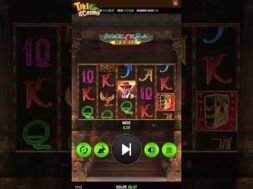Evaluating Betrolla’s licensing and trustworthiness amid common player concerns
In the rapidly evolving landscape of online gambling, players face the challenge of discerning trustworthy platforms from less reliable ones. Licensing credentials serve as a foundational element in establishing a platform’s legitimacy, providing assurance that the operator adheres to regulatory standards. For instance, platforms such as Betrolla have garnered attention, prompting players to scrutinize their licensing and security measures. Understanding how licensing influences trust and what practical indicators to look for can significantly enhance a player’s confidence when engaging with online gambling sites.
Table of Contents
- How licensing credentials influence player confidence in online gambling platforms
- Practical indicators of Betrolla’s regulatory compliance and security measures
- Analyzing player reviews and feedback regarding platform legitimacy
- Industry expert perspectives on Betrolla’s licensing validity and operational integrity
How licensing credentials influence player confidence in online gambling platforms
Identifying the key licensing authorities and their credibility
Online gambling platforms are regulated by various licensing authorities worldwide, each with distinct standards and credibility levels. The most recognized regulators include the Malta Gaming Authority (MGA), the United Kingdom Gambling Commission (UKGC), and the Gibraltar Regulatory Authority. These bodies enforce rigorous standards for fairness, security, and responsible gaming, and their licenses are often considered marks of trustworthiness. For example, platforms licensed by the UKGC are subject to stringent compliance checks, which tend to reassure players about the platform’s legitimacy.
Impact of license verification on user trust and platform reputation
Verifying a platform’s license is akin to checking a business’s accreditation in the offline world. When players see clear licensing information, including license numbers and issuing authorities, they perceive a higher level of transparency. This transparency fosters trust, as it indicates that the platform operates under legal oversight and adheres to industry standards. Conversely, a lack of visible licensing details can raise suspicion, potentially deterring cautious players from engaging.
Recent changes in licensing standards and their implications for players
Regulatory authorities continually update their standards to address emerging challenges such as cybersecurity threats and money laundering. For instance, recent reforms by the MGA include stricter anti-money laundering procedures and enhanced player protection policies. Such changes mean that licensed platforms must comply with evolving regulations, which benefits players by ensuring they are protected under current best practices. Platforms like Betrolla, which adapt swiftly to these standards, demonstrate their commitment to compliance and, consequently, their trustworthiness.
Practical indicators of Betrolla’s regulatory compliance and security measures
Transparency in licensing information and certification display
One of the practical steps to evaluate a platform’s legitimacy is to examine how clearly it displays its licensing credentials. Reputable sites typically have visible badges or links to licensing authorities, often located in the footer or about section. For example, a credible platform might display a license number and direct users to verify it on the regulator’s website. betrolla provides such transparent licensing information, which helps players verify its regulatory status independently.
Evaluation of data protection protocols and encryption standards
Security measures such as SSL encryption are crucial for safeguarding sensitive user data and financial transactions. Modern platforms employ protocols like TLS 1.2 or higher, ensuring data transmitted between the user and the server remains encrypted. Independent security audits and certifications, such as ISO/IEC 27001, further attest to the platform’s commitment to data security.
Assessment of anti-fraud and responsible gaming policies
Effective anti-fraud measures include real-time transaction monitoring, fraud detection software, and strict Know Your Customer (KYC) procedures. Responsible gaming policies involve setting deposit limits, self-exclusion options, and providing access to support organizations. Platforms that implement and promote these policies demonstrate a proactive approach to player protection, reinforcing their trustworthiness.
Analyzing player reviews and feedback regarding platform legitimacy
Common themes in player concerns about trustworthiness
Players frequently express concerns about delayed withdrawals, unresponsive customer service, or unexplained account suspensions. Such issues often reflect underlying compliance or security lapses. For example, persistent complaints about withdrawal delays might indicate inadequate financial controls or non-compliance with licensing standards.
Case studies of dispute resolution and complaint handling
Effective dispute resolution is a hallmark of reputable platforms. Consider a case where a player filed a complaint regarding a disputed bet, and the platform responded promptly by providing transparent evidence and resolving the issue amicably. Platforms with clear processes for handling disputes and positive feedback in community forums signal robust operational integrity.
How community insights reflect licensing effectiveness
Online gambling communities and review sites often aggregate user feedback, providing a broader perspective on the platform’s reliability. Consistent reports of fair play, timely payouts, and transparent policies suggest effective licensing enforcement and compliance. Conversely, recurring negative reports can highlight gaps in regulatory adherence.
Industry expert perspectives on Betrolla’s licensing validity and operational integrity
Expert analyses of Betrolla’s licensing jurisdiction and legal standing
Industry analysts evaluate licensing jurisdictions based on legal frameworks and enforcement rigor. Jurisdictions like Malta and the UK are known for stringent oversight, which enhances platform credibility. Experts often review licensing documents and cross-reference with regulatory databases to confirm legitimacy. If Betrolla holds a license from a reputable authority, it aligns with industry best practices.
Predictions on how regulatory trends may affect Betrolla’s trustworthiness
As regulators increasingly adopt stricter standards—such as enhanced AML protocols and player protection measures—platforms like Betrolla must adapt accordingly. Industry forecasts suggest that platforms proactive in compliance will maintain or even improve their trustworthiness, while those lagging may face sanctions or reputation damage. Staying ahead of regulatory trends demonstrates operational integrity and long-term viability.
Evaluating independent audits and third-party assessments of Betrolla
Third-party audits provide unbiased evaluations of a platform’s security, fairness, and compliance. Certifications from organizations such as eCOGRA or iTech Labs verify that the platform’s games are fair and that security protocols are in place. For example, independent testing of RNG (Random Number Generator) software ensures game fairness, a critical factor in building player trust. Platforms that publish audit results transparently signal confidence in their operations.
“Regulatory compliance and transparent security measures are not just legal requirements—they are fundamental to building lasting trust in online gambling.”




